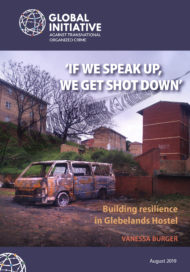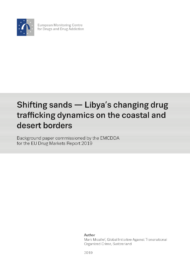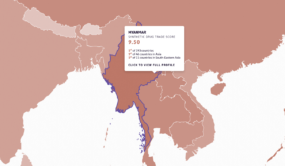Posted on 18 Jul 2017
By Andrew Lebovich
EXECUTIVE SUMMARY
Global interest in the Sahel has expanded significantly in recent years. The growth of regional terrorism, the collapse of Malian State in 2012, and the migration crisis after 2014 all mean that world must think about the Sahel. Yet despite the newfound attention to the region, regional and international efforts to resolve these crises remain inadequate.
Region-wide strategies and coordination forums have proliferated, and international money has poured into the region. But these strategies remain security-focused despite emphasising the need for improved governance. Informal economies and corruption continue to sap states of needed resources. And overly securitised efforts by the European Union to reduce migration to Europe damage border communities, undermine regional populations, and fail to adequately address the reasons why migration occurs.
This paper proposes a more holistic approach to regional stabilisation, one that acknowledges the need for better security capacity and coordination while also emphasising the need for greater regional integration between North Africa and the Sahel. This approach can help limit the appeal of operating in the informal sector while providing opportunities for legal work in the Sahel. The formalisation of some previously illicit or clandestine economic activity can, in turn, improve development and economic diversification in the Maghreb while providing labour opportunities for the region.
To accomplish these goals, the paper proposes that French and international efforts to improve intra-Sahel and Sahel-Maghreb integration focus on migration, economic reform, security coordination, and regional institutional frameworks.
- Addressing migration issues involves creating a joint migration framework for the Sahel, West Africa, and the Maghreb. The EU should assist these countries to regularise and legalise population flows. The EU should also provide financing for regional economic projects, leave room for some legal migration to Europe and reduce pressure on local governments to crackdown on border communities.
- Regional economic reform requires developing an approach to migration and informal economies that encompasses the Sahel and the Maghreb, while also encouraging outside investment by regional states as well as the international community.
- Better security coordination involves a focus on long-term security sector reform beyond basic training for troops in countries like Mali and a better integration of security and governance initiatives to make security gains durable and sustainable.
- Finally, improving regional institutions entails harmonising and strengthening regional coordinating bodies to help reduce dependence on international support.
POLICY RECOMMENDATIONS
- Develop a joint framework on migration among the countries of the Sahel, the broader West African region, and the Maghreb.
- Help countries in the region to regularise population flows.
- Increase investment in regional economic projects using the EU Trust Fund for Africa and the European External Investment Plan.
- Encourage increased investment in the Sahel, especially from the Maghreb.
- Streamline regional security cooperation and encourage security sector reform.
- Harmonise regional coordinating bodies and formats to improve efficiency.
- Rationalise international efforts through better coordination and streamlining.



